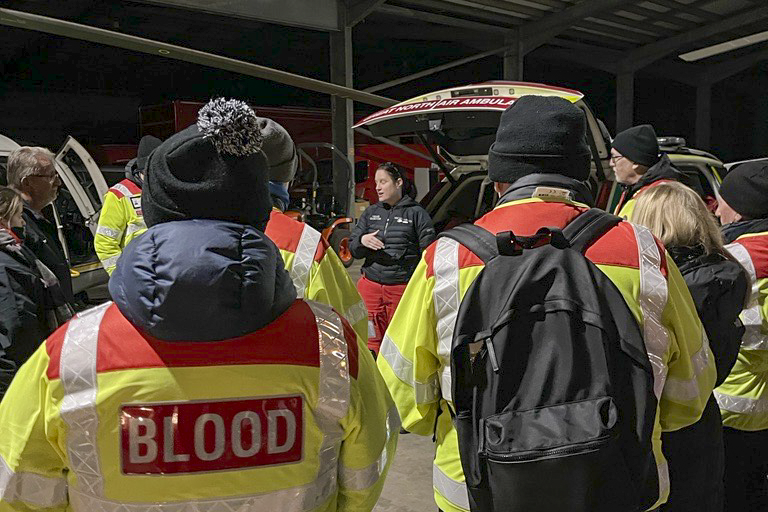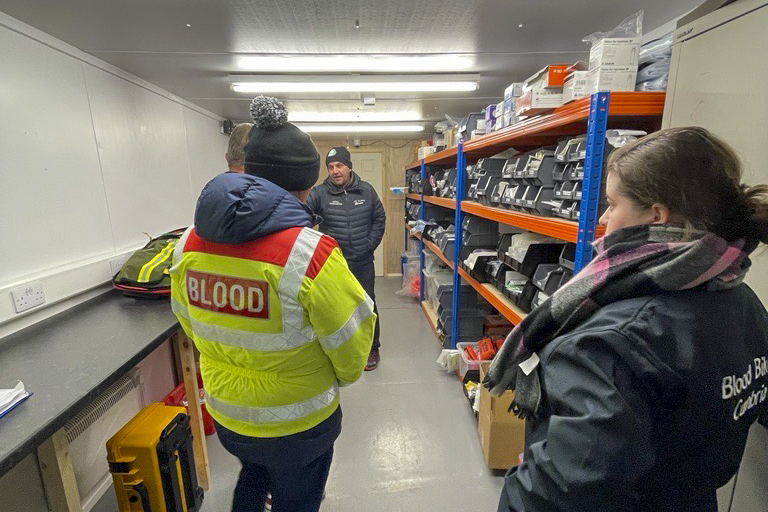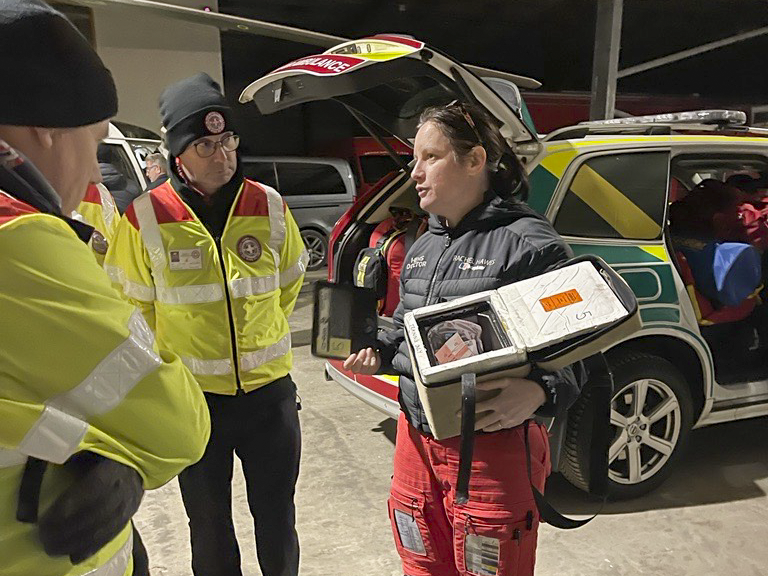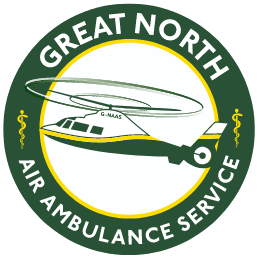We opened our hangar doors to the Cumbria Blood Bikers, offering an insight into how the blood they deliver saves lives and what happens once they’ve dropped it off…
The Great North Air Ambulance Service began carrying blood and plasma on board their helicopters and rapid response vehicles in 2015. The introduction allowed the critical care team to deliver transfusions at the scene of an incident, giving the most seriously ill or injured patients the best chance of survival until they arrive at the hospital.
The ‘Blood-on-Board’ scheme was devised by Dr Rachel Hawes OBE, an army reservist, consultant in anaesthesia and pre-hospital emergency medicine at the Royal Victoria Infirmary and doctor at GNAAS, and is a collaboration between Newcastle Hospitals, GNAAS, and volunteers from the Cumbria and Northumbria Blood Bikes.
In June this year, GNAAS celebrated the milestone of 500 patients receiving blood. In the five months that have followed, that number has increased to 550.


Wednesday’s event saw fifteen Blood Bikers welcomed to the airbase, where Dr Rachel Hawes, paramedic Mike Sproat and head of operations in Cumbria and paramedic Lee Salmon, delivered talks about the importance of the blood delivered. They gave tours of the base, aircraft and rapid response vehicles, as well as demonstrations of the equipment used in pre-hospital procedures.
Les Turner has been a Blood Biker since September 2014 and highlighted the importance of events for the volunteers.
He said: “Sometimes you think it’s thankless because you don’t see anybody. You get the call, you pick the bike up, you drop the blood off, you park the bike and you come home. So you don’t see another member, the only person you have contact with is the controller. But it feels a worthwhile thing to do, and I think while I can ride a bike, let’s do it.
“I try to organise fundraisers and that’s also a good chance to meet up with some of the guys and raise awareness”.


Blood Biker Martin Howell has been with the service for almost two years, volunteering mainly on weekends.
“My wife is a GP, so I wanted to give something back and help the process. It’s a good way to help society with my hobby and help the air ambulance, of course,” he said.
“It’s a big responsibility, getting the blood from A to B, and you have to be trained to advanced standards on the bike. I train Blood Bikers as well, and I was trained by someone who is a Blood Biker. There’s a natural progression through the training.”
Blood Bikers need an advanced qualification from the Institute of Advanced Motorists (IAM) or the Royal Society for the Prevention of Accidents (RosPA) standards, with tests every three years.
Les Turner said: “When I started, you had to ride your own bike. Before you got your IAM, you couldn’t ride the liveried bikes because we were only starting up.
“The IAM is worth doing. You do learn so much. So even if you don’t go ahead and become a Blood Biker, it’s worth doing the course.”
However, not all of the volunteers ride bikes. Louise Hetherington is Blood Bikes Cumbria’s operations manager, bringing the logistics skills gained from her day job to the cause.
She said, “Events like this are so important to gain awareness about what each group does.
“We know we play an integral part in the blood supply to GNAAS, but letting the bikers see what equipment is used and how it interacts puts the whole meaning into perspective.
“Although they’re only one part of the jigsaw, without that part, something else would be missing.”


Dr Hawes said about the event: “It’s been lovely tonight to have the Blood Biker teams here. It’s really important to us to make those teams aware of how important their input is to us.
“Without the Blood Bikers, we couldn’t run our service. We would not have that delivery network available, which means that we couldn’t run the Blood-on-Board service.
“We are entirely dependent on their daily delivery, but they help us out with ad hoc deliveries as well. So, if we use our blood within the course of a shift, they are brilliant at then going to the RVI and getting a fresh box and bringing it back for us, to make sure that we can focus on clinical care, without having to think about the logistics that happen behind that.”
Paramedic Lee Salmon added: “Without the time, effort, expertise and devotion of the Blood Bikers, we couldn’t do what we do, so this is our little way of saying thank you.”
To find out more about the Blood Bikers Cumbria, visit bloodbikescumbria.org.uk



